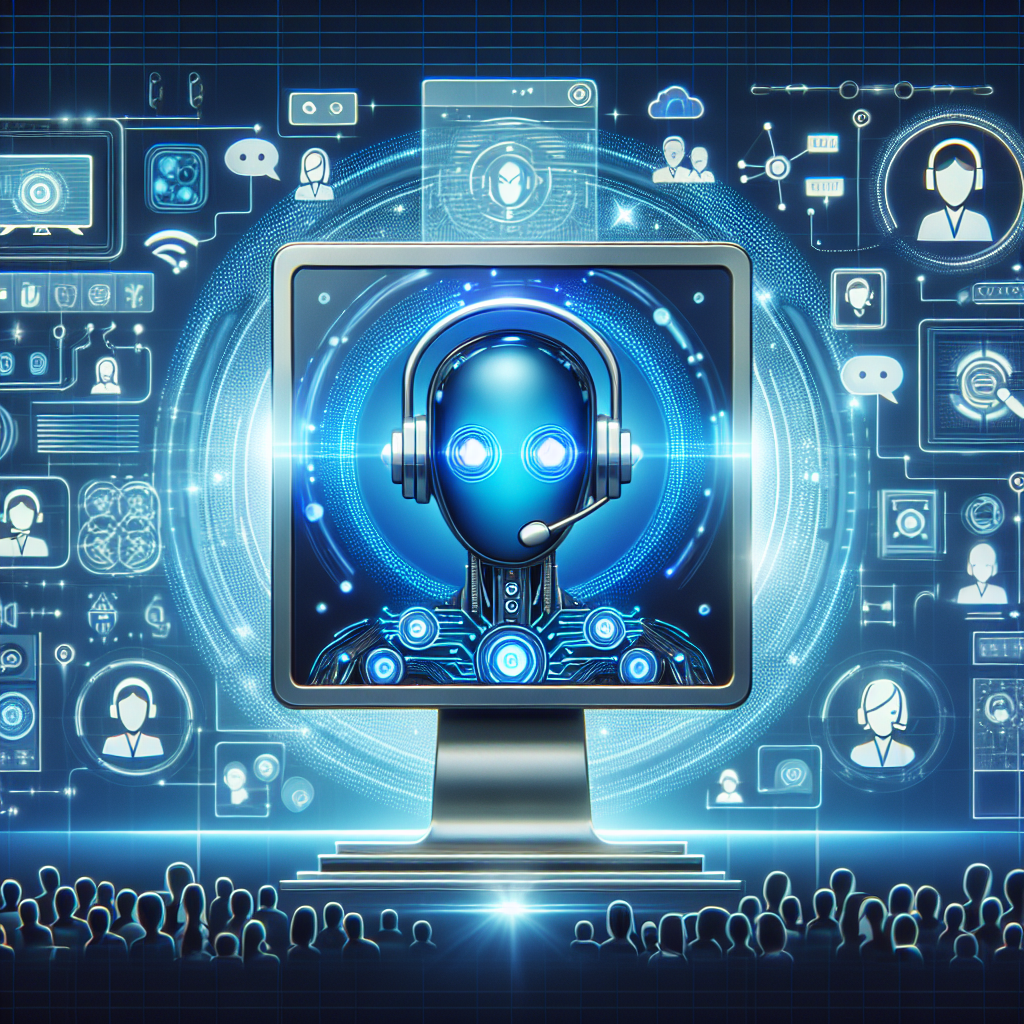Introduction
Artificial intelligence (AI) has been making significant strides in various industries, including customer service. With the advancement of AI technology, many companies are now using AI-powered solutions to streamline their customer service operations and improve overall customer satisfaction. However, this technological advancement also raises concerns about the future of customer service jobs. In this article, we will explore the impact of AI on customer service jobs and discuss how companies can leverage AI to enhance their customer service operations.
AI and the Future of Customer Service Jobs
AI has the potential to revolutionize the customer service industry by automating routine tasks and providing faster and more accurate responses to customer inquiries. AI-powered chatbots, for example, can handle a large volume of customer queries simultaneously, freeing up human agents to focus on more complex issues. This can lead to improved efficiency and reduced operational costs for companies.
While AI has the potential to enhance customer service operations, it also raises concerns about the future of customer service jobs. Many fear that AI-powered solutions will replace human agents, leading to job losses in the customer service industry. However, experts believe that AI will not completely replace human agents but rather augment their capabilities.
AI can help human agents by providing them with real-time insights and recommendations to better serve customers. For example, AI-powered tools can analyze customer data to predict customer needs and preferences, enabling human agents to provide personalized and proactive support. This can lead to higher customer satisfaction and loyalty.
Furthermore, AI can help companies scale their customer service operations more efficiently. With AI-powered solutions, companies can handle a larger volume of customer inquiries without having to hire additional human agents. This can lead to cost savings for companies and improved customer service for customers.
Overall, the future of customer service jobs is likely to involve a combination of AI-powered solutions and human agents working together to provide the best possible customer experience. Companies that embrace AI and invest in training their human agents to work alongside AI-powered tools will be well-positioned to succeed in the evolving customer service landscape.
How Companies Can Leverage AI for Customer Service
There are several ways companies can leverage AI to enhance their customer service operations:
1. Implement AI-powered chatbots: Chatbots can handle routine customer inquiries, such as checking order status or providing product information, freeing up human agents to focus on more complex issues. Companies can use chatbots to provide 24/7 customer support, improving response times and overall customer satisfaction.
2. Use AI for customer data analysis: AI can analyze customer data to identify trends and patterns, enabling companies to better understand customer preferences and behavior. This information can help companies personalize their interactions with customers and provide more targeted and relevant support.
3. Provide AI-powered recommendations: AI can provide real-time recommendations to human agents based on customer data and interactions. This can help human agents provide more personalized and effective support to customers, leading to higher satisfaction and loyalty.
4. Use AI for predictive analytics: AI can predict customer needs and preferences based on historical data, enabling companies to anticipate customer inquiries and proactively address customer issues. This can lead to improved customer satisfaction and retention.
5. Invest in AI training for human agents: Companies should provide training to their human agents on how to effectively work alongside AI-powered tools. This can help human agents maximize the benefits of AI and enhance their overall performance.
By leveraging AI in these ways, companies can improve their customer service operations, increase efficiency, and ultimately enhance the overall customer experience.
FAQs
Q: Will AI replace human agents in customer service jobs?
A: While AI has the potential to automate routine tasks in customer service, it is unlikely to completely replace human agents. AI is more likely to augment human agents by providing them with real-time insights and recommendations to better serve customers.
Q: How can companies ensure a smooth transition to AI-powered customer service?
A: Companies can ensure a smooth transition to AI-powered customer service by investing in training for human agents, implementing AI-powered tools gradually, and continuously monitoring and adjusting their customer service operations based on feedback and performance metrics.
Q: Will AI-powered customer service lead to job losses in the customer service industry?
A: While AI-powered customer service may lead to job losses in some areas of the customer service industry, it is likely to create new job opportunities in AI development, data analysis, and customer experience management. Companies that embrace AI and invest in training their human agents to work alongside AI-powered tools will be well-positioned to succeed in the evolving customer service landscape.
Conclusion
AI has the potential to revolutionize the customer service industry by automating routine tasks, providing faster and more accurate responses to customer inquiries, and enabling companies to scale their customer service operations more efficiently. While AI raises concerns about the future of customer service jobs, experts believe that AI will not completely replace human agents but rather augment their capabilities.
Companies that embrace AI and invest in training their human agents to work alongside AI-powered tools will be well-positioned to succeed in the evolving customer service landscape. By leveraging AI for customer service, companies can improve efficiency, personalize customer interactions, and ultimately enhance the overall customer experience.

